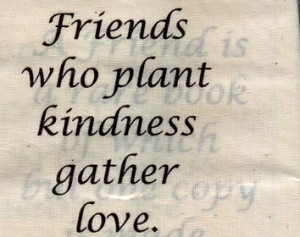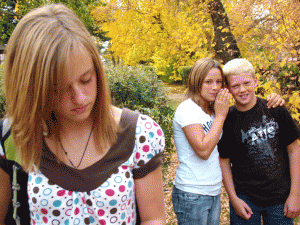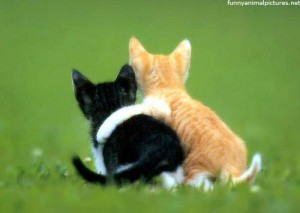 Friendship is one of the most precious gifts that we can give or receive from another. But for the friendship to thrive it must be of value to both parties. In fact if the friendship becomes one-sided – if you are the one that is reaching out or being asked to always do for the other – it may be a sign that the friendship does not have an appropriate give and take. This sort of demand of one party over the other may be an indication that there is an imbalance in the relationship.
Friendship is one of the most precious gifts that we can give or receive from another. But for the friendship to thrive it must be of value to both parties. In fact if the friendship becomes one-sided – if you are the one that is reaching out or being asked to always do for the other – it may be a sign that the friendship does not have an appropriate give and take. This sort of demand of one party over the other may be an indication that there is an imbalance in the relationship.
For adults we may begin to tire of the giving or we may just feel calmer or happier when we are not around the other person who is always taking from us. If we are a child, we may notice that the other person is demanding all of our time and attention. They may want to play their games only or they may not share very well.
When this happens it may be time to broaden our scope of relationships and look to find those that treat us with respect, are honest and are there for us when we need them. This does not mean that we need to have some kind of big talk with the other person, whether we are an adult or a child. It may mean that we just need to back away a little and take a little break.
There may be times though that we will want to have a talk about the relationship. If this is the case, remembering to be honest and assertive with respect, but not critical, is key to having this kind of conversation. In dealing with kid’s relationships we want to remember that just because we enjoy the company of the parents, does not mean that our kids are going to be or have to be friends. Keeping our adult relationships adult and our kids friends their friends is much healthier for our kids than trying to force them to be friends with someone they do not like or have little in common with, except their parents that like each other.




